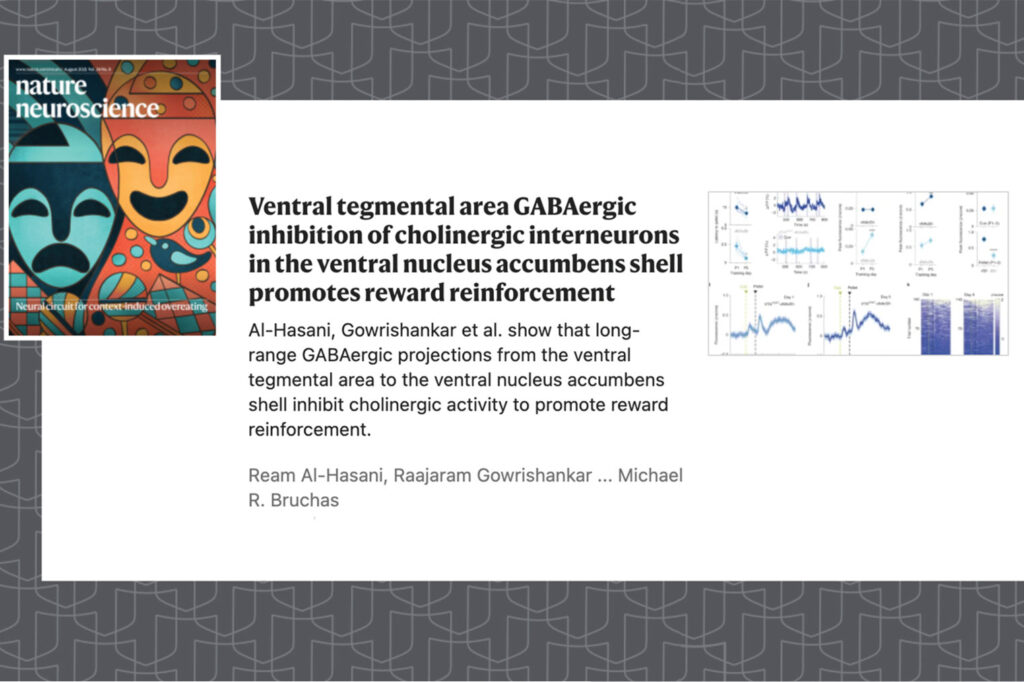In a recent study published in Nature Neuroscience on August 12, 2021, Dr. Ream Al-Hasani and colleagues have identified a new role for a GABA projection in reward processing which could lead to new treatments for addiction and depression.
Previously research has focused on the role of dopamine in reward processing in the reward hub of the brain, which includes connections between the ventral tegmental area and nucleus accumbens brain regions. Through this research, Dr. Al-Hasani and team have discovered that the GABA projection – which runs alongside the dopamine projection – also plays a role in reward processing.
“When we talk about reward processing this includes how we process natural rewards, for example, eating sweet foods and social interaction, as well as rewards driven by drugs of abuse,” said Dr. Al-Hasani.
These new findings offer a new system to target and emphasize the complexities of studying neuropsychiatric diseases and why treatment can be so difficult.
“Up until now, research has often focused on dopamine and opioids in reward processing, but these findings go beyond these neurotransmitters,” continued Dr. Al-Hasani. “This is not only exciting for reward processing in the context of addiction, but also depression. Treatments for depression are oftentimes ineffective and focus on the serotonergic system, but now we are able to consider a role for GABA as a potential new line of investigation.”
Dr. Al-Hasani is an Assistant Professor at the Center for Clinical Pharmacology with appointments in the Department of Pharmaceutical and Administrative Sciences at the University of Health Sciences and Pharmacy in St. Louis and the Department of Anesthesiology at Washington University in St. Louis.
In her laboratory, Dr. Al-Hasani uses these multidisciplinary approaches to further our understanding of the negative affective behaviors associated with the withdrawal phase of addiction and the interaction of endogenous opioid systems with commonly prescribed opioid analgesics.
